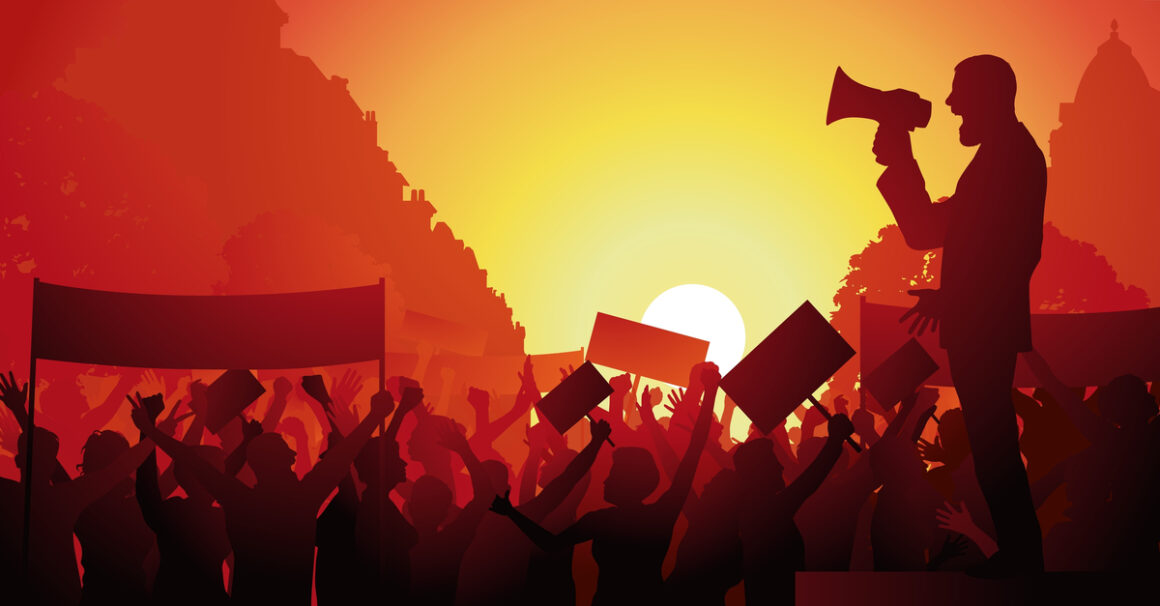|
|
It’s an optimistic view. But some believe unions might be ready for a 21st century make-over.
Instead of being run by union bosses, unions might be a perfect use case for being organized via Decentralized Autonomous Organizations (DAOs).
Experiments are already happening, including the first known instance of a “brick-and-mortar” (ie. business with physical locations) DAO, with functions of unionization mediated and performed by smart contract code.
Wyoming has been ground zero of DAO percolation in the U.S., since the summer of 2021.
That’s when the state passed a bill to legally recognize DAOs as corporate structures (Trends Journal covered that development in “WYOMING OKAYS NATION’S FIRST DAO ‘CRYPTO LLC’,” 13 Jul 2021).
Since that first legally recognized DAO, over 250 other DAOs have been registered in the “Equality State” (also long nicknamed the “Cowboy State”).
“Cup o’ Joe” and a Crypto Union?
By far, most DAO’s so far have been digital organizations, meant to organize and coalesce people interested in supporting various endeavors and causes.
But CaféDAO is reportedly the first to attempt to create a DAO that has a commercial operation as a brick-and-mortar coffee shop.
The shop is set to operate according to a DAO governance model, according to crypto outlet Cointelegraph.com.
CaféDAO wants to provide everyone who walks into its coffee shop a sense of ownership.
The concept will be demonstrated at a pop-up event at Seattle’s nonfungible token (NFT) museum in late April.
“Customers who purchase one cup of coffee can immediately become co-owners of TheCaféDAO and steer the future of the business,” explained co-founder Daniel Carias.
How will it work? Everyone who makes a purchase at the pop-up shop will be given ownership in the DAO, thanks to a mix of Ethereum signatures and blockchain technology.
Ownership tokens will be able to be held in a recipient’s crypto wallet–at least in a simulated way, for now, during this demonstration period. According to a spokesperson:
“We are starting off by tracking every purchase made using Google Sheets. We know this is centralized, but we are going to be very public about each transaction. We are also providing a simulated distribution of our coffee tokens to everyone who makes a purchase at our upcoming pop-up. The coffee tokens serve as a piece of ownership into the DAO.”
DAOs May Promote a “Third Way” Economic and Governance Model
Some believe that DAOs, which provide a software regulated method for customers to partake in governance and profit of companies, in a way that is much more direct and efficient than shareholder meetings and even stock purchasing and selling, will be a wave of the near future.
Yat Siu, co-founder of Animoca, a huge gaming and venture capital company based in Hong Kong, said in an interview with Cointelegraph that he believes DAOs can change the dynamic where for-profit companies view customers as a resource from which value must be extracted.
“This is the classic capitalist zero-sum approach based on ownership and governance by a few. But in a DAO, growth tends to both originate and benefit the very group that is typically targeted for value extraction in zero-sum scenarios: the customers.”
Siu added: “The customers are also stakeholders and, therefore, have the potential to increase standards of equitability and fairness in the business.”
The Trends Journal recently reported on an Accenture report that exemplified a potentially corrosive view, advising that metaverse technologies should seek to deceptively develop a perception of value in “synthetically unreal” products, in order to sell a new market of digital services and products to people. (See “SELLING THE SYNTHETIC UNREAL,” 12 Apr 2022)
DAOs, via widespread input mechanisms of democratic input, could conceivably more equitably examine, critique and potentially reject that kind of cynical exploitation.
DAOs are also envisioned by some web3 advocates as providing a potentially revolutionary answer to worker rights.
As Gerald Celente forecasted in 2022 Top Trend LABOR UNION COMEBACK, many companies are facing resurging union movements.
Amazon and Apple are examples of two huge, supposedly “woke” corporations that have undermined and resisted their workers gaining more rights to better their working conditions.
But some inroads have recently been made, as the Trends Journal has pointed out and predicted.
Some web3 proponents think DAOs might be another option for workers to obtain equal representation.
State Senator Chris Rothfuss, who helped draft and promote DAO legislation in Wyoming, said he believes the blockchain-powered technology may provide a modern answer to organization problems that have tried to envision and implement equity, but often failed as miserably as any endeavor where a relative few can grasp and abuse power.
“Nothing provides a better opportunity to bring workers into the value chain while ensuring them with the right to influence outcomes and share in profits or benefits than a DAO structure,” said Rothfuss. A DAO could very well be the union of the future.”
For related articles, see:
- “UNIONIZATION ON-TREND: AMAZON WORKERS VOTE TO UNIONIZE” (8 Feb 2022)
- “REI: UNIONIZATION TREND EXPANDS AS FORECAST” (1 Feb 2022)
- “ACTIVISION STUDIO GROUP WILL FORM A UNION, SOLIDIFYING TRENDS JOURNAL FORECAST” (25 Jan 2022)
- “STARBUCKS STORE TO UNIONIZE, A TOP TREND FOR 2022?” (14 Dec 2021)
- “BUTERIN SEES BIG THINGS FOR DAOs” (12 Oct 2021)
- “THE CRYPTO ‘AGE OF UTILITY’ HAS JUST BEGUN” (12 Oct 2021)
- “VENTURE CAPITAL GETTING A DAO MAKEOVER” (16 Nov 2021)
- “WHY BITCOIN MAXIMALISM GETS IT WRONG” (18 Jan 2022)

